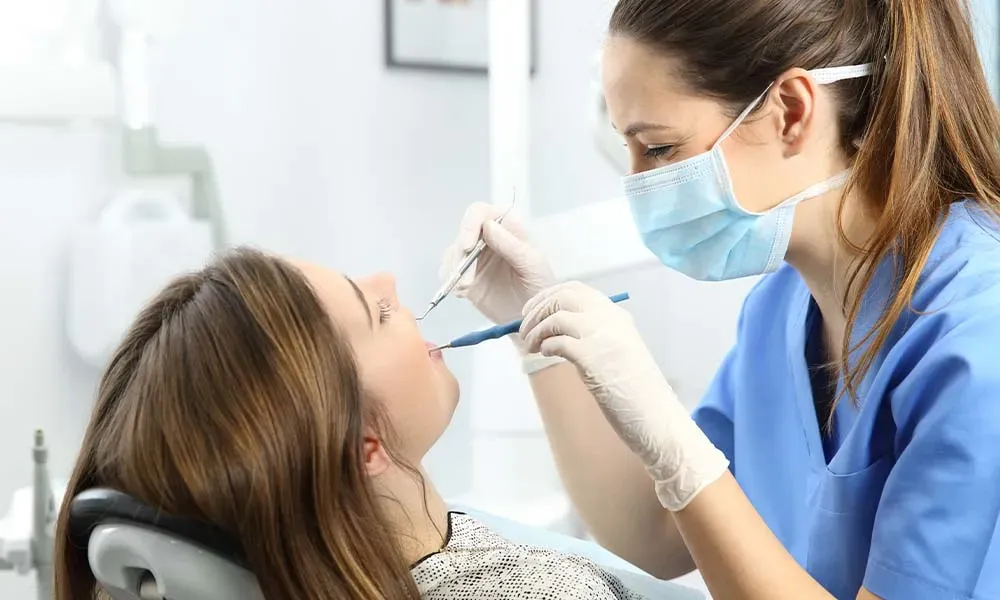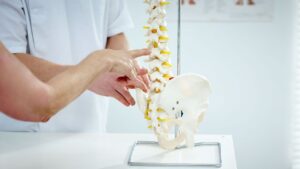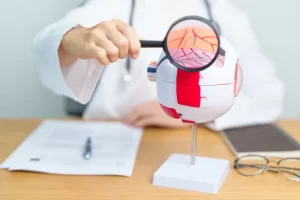
Oral health is a crucial aspect of your overall well-being. Ignoring it can negatively impact your general health predisposing you to several systemic health diseases. Regular dental exams and cleanings are essential for maintaining good oral health. These procedures are vital for preventing oral health issues, detecting any existing problems, and ensuring overall well-being.
In this article, we will delve into the importance of dental exams and cleanings offered by the family dentist Toluca Lake, what to expect during these procedures, and how they contribute to a healthy smile and body.

What is the importance of dental examination?
Dental exams are comprehensive assessments of your oral health that offer great importance in maintaining optimal health. During a dental exam, your dentist will:
- Check for signs of tooth decay and cavities
- Examine your gums for any signs of gum disease
- Screen for oral cancer
- Inspect your bite, jaw, and alignment
- Assess your dental work, such as fillings or crowns
- Examine your tongue, throat, and surrounding tissues
Dental exams are crucial for detecting oral health problems early on, and they also provide an opportunity for your dentist to offer personalized oral hygiene advice.
What is the importance of dental cleanings?
Dental cleanings, also known as oral prophylaxis, are professional teeth-cleaning procedures that remove plaque, tartar, and bacteria from your teeth and gums. These cleanings are essential for:
- Preventing gum disease and tooth decay
- Removing stubborn stains and plaque
- Polishing teeth to leave them feeling smooth and fresh
- Reducing the risk of oral health issues and related systemic conditions
What are the types of dental cleanings?
There are various types of dental cleanings, including:
Prophylaxis cleaning: The most common type of cleaning, recommended every six months for preventative care.
Scaling and root planing: A deeper cleaning procedure for gum disease treatment.
Gross debridement: A procedure for removing dead tissue and bacteria from the mouth.
What to expect during a dental exam and cleaning?
During a dental exam and cleaning, you can expect:
- A comprehensive examination of your oral health including your teeth, gums, bone health, hard and soft palate
- A thorough cleaning of your teeth and gums
- Removal of plaque, tartar, and bacteria
- Polishing of teeth
- Personalized oral hygiene advice through patient education
- Recommendations for future appointments and treatments
What are the benefits of regular dental exams and cleanings?
Regular dental exams and cleanings offer numerous benefits, including:
- Early detection and prevention of oral health problems
- Reduced risk of gum disease, tooth decay, and oral cancer
- Fresh breath and a brighter smile
- Boosted confidence
- Overall health benefits, as oral health is linked to various systemic conditions
How often should you get a dental exam and cleaning?
The recommended frequency for dental exams and cleanings is every six months. However, this may vary depending on your individual oral health needs. Some people may require more frequent visits due to poor oral health, while others may be advised to come in annually.
What are the common misconceptions about dental exams and cleanings?
Some common misconceptions about dental exams and cleanings can be a cause of anxiety. These include:
- They are only necessary when experiencing pain or noticeable issues.
- They only focus on detecting cavities.
- Cleanings are uncomfortable or painful.
- Regular cleanings are not necessary with good oral hygiene habits.
- Dental exams and cleanings are only for children or those with visible issues.
What are the consequences of avoiding regular dental care?
Neglecting regular dental exams and cleanings can lead to:
- Increased treatment costs
- Tooth loss
- Pain and discomfort
- Impact on overall health
- Emergency dental visits
Are dental X-rays included during routine dental examinations?
Dental X-rays are often recommended only when deemed necessary. This is done to avoid unnecessary exposure of patients to X-ray radiation. If you experience toothache or advanced gum disease, your dentist may recommend radiographs to assess the extent of tooth decay, and bone loss respectively.
Bottom line
Dental exams and cleanings are crucial for maintaining good oral health and overall well-being. By understanding the importance of these procedures and what to expect during them, you can take proactive steps towards a healthy smile and body. Remember, regular dental exams and cleanings are essential for detecting and preventing oral health problems, and they contribute to a brighter, healthier future.







